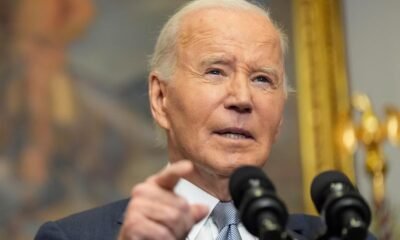amazon
Biden’s Crony Capitalism: On the Brink of Collapse

By David Blackmon |
Recent developments in energy policy starkly contrast the approaches of the current Biden administration and potential future policies under a second Trump administration. A key event occurred on November 26 when the Biden Department of Energy, spearheaded by Secretary Jennifer Granholm, announced a $6.6 billion low-interest loan to electric vehicle manufacturer Rivian. This financial boost aims to facilitate the establishment of a new plant in Georgia, which would expand Rivian’s production capability to 400,000 cars annually, supplementing its current Illinois facility, which produces 150,000 units.
However, Rivian’s financial struggles raise pertinent questions about this hefty loan. Unlike Tesla, Rivian and most other U.S. electric vehicle manufacturers have repeatedly faced fiscal challenges. In 2023, the company significantly missed sales projections, leading to price reductions and layoffs to manage its existing debt load.
As of now, Rivian reports sales of just over 37,000 vehicles this year, reflecting a concerning loss of over $107,000 per car. Given this performance, the need for $6.6 billion in taxpayer support to boost production capacity to 550,000 units—an increase nearly thirteen-fold over current sales—is questionable.
Moreover, Amazon, a significant investor in Rivian, is largely backed by billionaire Jeff Bezos, whose wealth exceeds $226 billion. If the investment were strategically sound, one might wonder why Bezos or Amazon have not pursued this financial boost themselves.
This scenario appears indicative of a broader trend in Biden-era policies characterized by crony capitalism, aimed at distributing substantial funds before Trump potentially shifts the energy policy landscape upon taking office.
Just a day before the Rivian announcement, Trump signaled plans to impose 25% tariffs on goods from Canada and Mexico unless these nations take immediate action to address illegal immigration and drug trafficking. Canada and Mexico are the largest sources of crude oil for the U.S., making this strategy particularly impactful on America’s energy landscape.
Trump’s timing is strategic, giving these countries an opportunity to initiate reforms in exchange for avoiding tariffs. This approach showcases his negotiation skills, which have served him well in business, a contrast to Biden’s handling of border-related issues that have contributed to rising fentanyl deaths in the U.S.
In the following days, reports emerged of Trump discussing border reforms with Mexican President Claudia Sheinbaum, with Trump asserting notable progress. Subsequently, Canadian Prime Minister Justin Trudeau traveled to Mar-a-Lago for negotiations with Trump regarding potential reforms to avert tariffs, highlighting swift diplomatic developments even before Trump officially assumes office.
While Biden continues to serve as president, the prevailing crony-capitalist strategies are quickly losing relevance. A shift towards a more dominant and strategic American energy policy is imminent under Trump, a change many consider necessary.
This is a completely advertising post.


















